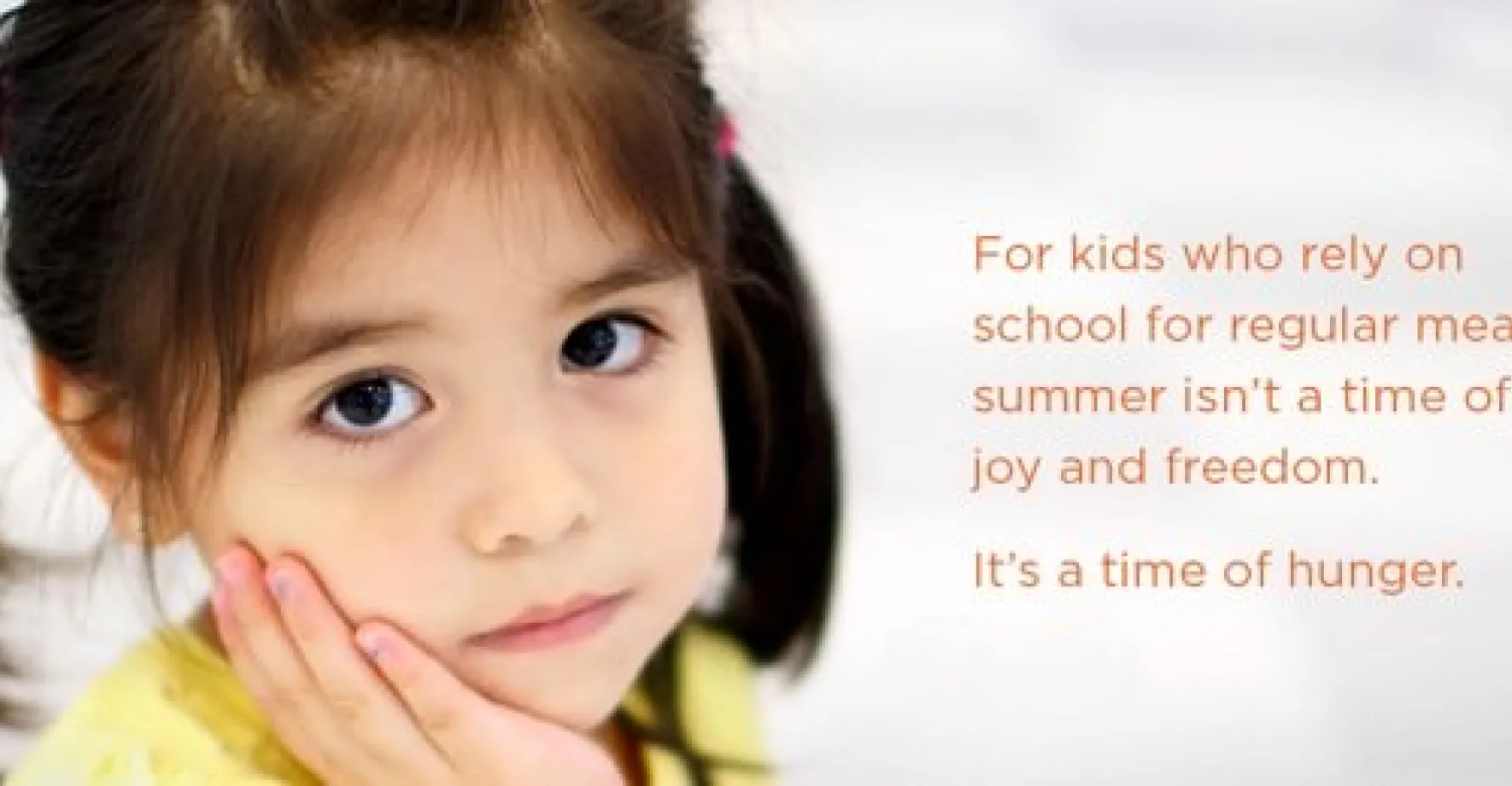
- Summer is a time of need. For some kids, summer is a time of joy and freedom. For millions of kids who rely on school for regular meals, however, summer can be a time of hunger and anxiety. Research shows that family grocery costs rise more than $300 a month when school is out and school meals disappear, putting a strain on already-tight budgets. That leaves many families making tough trade-offs; two-thirds of all low-income families say they’ve had to choose between food and utilities, two-thirds also had to choose between food and medical care.
- Summer hunger has long-term consequences. A lack of reliable nutrition during the summer months takes a major toll on children. Kids who struggle with hunger are more likely to experience “summer slide”, forgetting what they learned and starting the next school year months behind their more affluent peers. Kids who struggle with hunger are more likely to experience long-term health consequences, like iron deficiency, anemia, asthma, type 2 diabetes, and heart disease.
- Summer meals are a lifeline for hungry kids. Summer Meals are a lifeline for kids in need. The national summer meals program was created 40 years ago to help students get enough nutrition when school is out of session. Summer meals programs are funded by the United States Department of Agriculture (USDA); administered by state agencies, such as state departments of education; and run by public and private organizations, including schools, community centers, and faith-based organizations. To find the closest summer meal site, simply text the word “FOOD” to 304-304.
- The summer meals program doesn’t reach many kids who need it. When the program works well, it’s a lifeline. Today, however, the program just doesn’t reach a majority of kids in need; of the 22 million kids who receive a free or reduced-price school lunch, only 4 million are getting a summer meal. Barriers like transportation, unsafe streets, distance and extreme weather stop millions of kids from accessing the program and getting the food they need.
- Congress has the chance to help more kids get the food they need. Congress is currently considering improvements to the summer meals program through child nutrition reauthorization. We must urge our lawmakers to stand up for kids and pass a strong bill that supports and strengthens existing summer meal sites through policies that make it easier for states to reach low-income children. For example, where it makes sense, states should have the option to provide low-income families with a grocery store credit during the summer months to purchase nutritious foods, a model that has been proven to reduce the most severe forms of childhood hunger by up to one-third. In other circumstances, when accessing a summer meal site is difficult or impossible for children, states should have the option to deliver meals or allow children to leave a site with a meal for later.
Senator Patty Murray Comments on Child Summar Hunger Issue.


